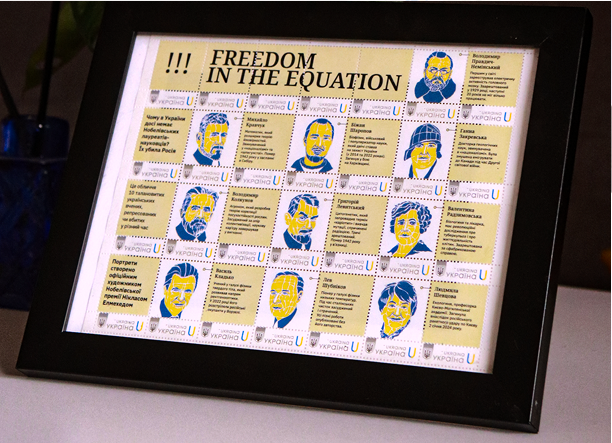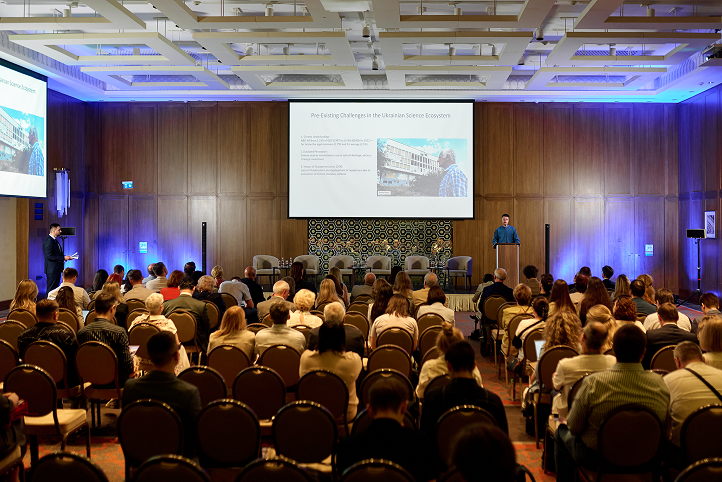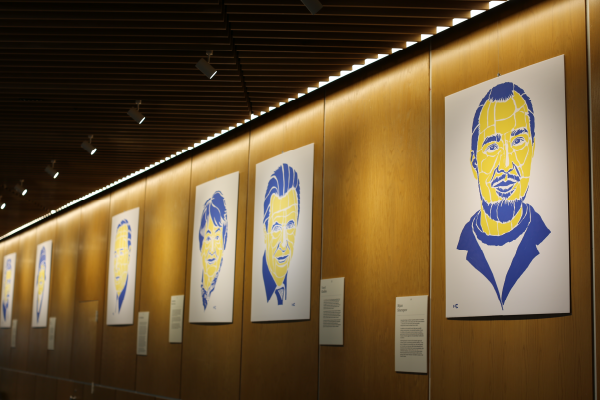

Science advocacy during wars and crises: Olena Zinenko's blog
10.10.23
Olena Zinenko, a media researcher at ZOiS — Center for East European and International Studies. She is also a journalism, PR, and media communications teacher at Karazin Kharkiv National University and Kharkiv State Academy of Culture. In the project, she works with communications, namely the topic "Science advocacy during wars and crises". Read about the methods, results, and conclusions of the research in the interview.
Today, with life intensifying, decisions must be made quickly, and information must be effective: transparent, clear, and targeted. The mediatization of war, politics, and culture is rapidly evolving, and science should not stay aloof — It needs to be visible; otherwise, society may think it does not exist. This is the nature of life in an information-driven society.
Science holds a social value, yet it often remains uncommunicated—lacking explanation and discussion. There is also a deficiency in the ideas exchange within the scientific community, especially regarding the discussion of science's developmental needs. A significant challenge in science communication in Ukraine is the necessity to simplify complex content to save time for communication.
The importance of communication in society is often underestimated, with many assuming that it should naturally happen by itself.
In Ukrainian society, the communication of science tends to be ritualistic, leaving those who are not part of this interaction scenario excluded. Now there's no room for rituals, but ample time to form a new, effective culture of communication.
I took part in writing a white paper titled "Science Advocacy during Wars and Crises". This is one of the books devoted to communication. We think of science advocacy as a series of actions aimed at influencing authorities, implementing government policies to protect the rights and interests of scientists, and gaining public support and understanding.
Considering this issue, we draw upon the fact that Ukraine already has experience in advocating for complex issues, such as human rights protection, violence prevention, gender equality, and inclusion. There are also successful cases of advocating decisions to meet scientific needs both during times of martial law and in peacetime. We recognize the importance of this experience. Furthermore, there is research and practice of science advocacy abroad, which we appeal to as we develop the topic.
Another issue is whether we need to advocate for everything, meaning, is it always necessary to lobby for drastic changes?
Ukraine has developed certain mechanisms, laws, and policies, yet they are not implemented for various reasons. The institutions that are intended to protect scientists' rights and promote creating an environment for productive scientific work do not function. There are some organisations, which collaborate with scientists and achieve remarkable results, but their contribution often goes unnoticed. From my point of view, focusing on a scientist as a person, who knows the needs for activities implementation is essential when addressing the topic of advocacy.
The selection of methods and tools is classic for qualitative analysis. These include semi-structured surveys, expert interviews, desk research on legislation, data analysis, and discussions of the topic in social networks. We work both with individual cases and data sets, which require structuring and non-linear interpretation. This is called the "grounded theory" approach, where we determine our direction by formulating the problem and key question, and then identify the necessary datasets. During the first phase, we focused on exploring the context of the first year of a full-scale invasion, while in the second phase, our priority was to find out the best practices in the interaction between scientists and stakeholders. Having a vision of the future — how things should work in an ideal world — is crucial for advocacy. We do not focus solely on finding negative examples, but on identifying best communication practices. However, thanks to expert interviews, we also gathered real-life stories, facts, and problematic situations that highlight communication barriers and gaps in understanding the functioning of the system for preserving, developing, and restoring science.
Every story shared by scholars and scientists is unique and meaningful. In times of war, individuals in the field of science demonstrate exceptional qualities, taking on not only personal responsibility but also responsibility for their teams and even their communities. These heroic deeds may easily go unnoticed if not advocated: evacuating laboratories, preserving collections amidst occupation or shelling, offering shelter to both Ukrainian and foreign students, and even establishing food production for the military. This list will continue to grow in the book.
It's worth noting that the circumstances scientists faced during the war partly created opportunities for science. In Ukraine, it mostly involves realising one's significance and recognising the needs of the scientific community. Abroad, we were able to "remove the invisibility cloak" and get rid of the shadow of Russian science. Now the situation is changing, there is greater access to information, to the formation of the Ukrainian scientific agenda on the global stage.
Our future objectives are aimed at advocacy goals. These span from ensuring the realization of fundamental rights like freedom of thought, development, access to information, education, and academic mobility to protecting labor and social rights, creating mechanisms for the sustainable development of scientific institutions, and accessing opportunities at the local, national, and international levels.
In this regard, it is relevant to promote advocacy awareness among scientists. Establishing cross-sectoral communication through the creation of inter-institutional platforms, which serve as arenas for discussing critical societal challenges such as ecology, information security, and image policies, is essential. Building a culture of scientific discourse is crucial, involving reimagining the approach to opinions exchange within the academic sphere, ensuring access to science in schools and educational institutions, and developing an effective system for engaging with the media. It is urgent for the development, restoration, and preservation of science to build horizontal networks that would facilitate interaction with stakeholders — the government, business, and the public.

